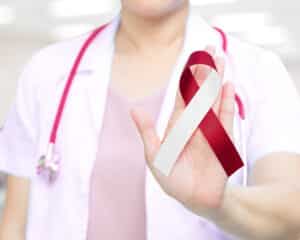What To Know Now About Oral Cancer

 April is Oral Cancer Awareness Month. Contrary to what many people believe, oral cancer is not one singular kind of cancer. Instead, oral cancer refers to any of the cancers that develop on your lips, cheeks, mouth, sinuses, or throat. Like most other cancers, your cells mutate and fail to follow their instructions; instead, they grow and divide uncontrollably. Also, as with most cancers, the exact causes are unknown, some significant risk factors have been identified, and early detection is crucial to successful treatment.
April is Oral Cancer Awareness Month. Contrary to what many people believe, oral cancer is not one singular kind of cancer. Instead, oral cancer refers to any of the cancers that develop on your lips, cheeks, mouth, sinuses, or throat. Like most other cancers, your cells mutate and fail to follow their instructions; instead, they grow and divide uncontrollably. Also, as with most cancers, the exact causes are unknown, some significant risk factors have been identified, and early detection is crucial to successful treatment.
4 Biggest Risk Factors for Developing Oral Cancer
The four most significant risk factors that increase your risk of oral cancer are:
- Tobacco Use: Cigarettes, cigars, pipes, and chewing tobacco all significantly increase the risk of oral cancer.
- Heavy Alcohol Use: While an occasional drink is insignificant, heavy alcohol consumption is another major oral cancer risk factor.
- HPV: Certain types of the human papillomavirus (HPV) increase the risk of oral cancer.
- Sun Exposure: Regular exposure to sunlight, especially on your lips, can increase oral cancer risk.
Early Signs of Oral Cancer
What signs should you be looking out for? A few early signs that you should be checked out include:
- Sores on your lips or mouth that don’t heal after two weeks
- Bleeding in your mouth that you can’t explain
- Numbness or pain inside your mouth or on your tongue
- A lump or thickening in your cheek
- White or red patches inside your mouth, on your gums, tongue, or tonsils
- A persistent feeling like you’ve got something caught in your throat
Because time is of the essence in cancer treatment, do not delay getting examined if you notice any of these symptoms. Additionally, having dental exams twice a year is a good way to screen for early signs of oral cancer. Your dentist can examine your face and mouth for any symptoms and recommend further evaluation if they feel it is warranted.
Oral Cancer Treatments
Every cancer has its own treatment plan, depending on the patient’s stage, size, location, and health. With oral cancers, the typical treatments include removing the cancerous cells, radiation therapy, and chemotherapy.
Oral Cancer Prevention
You can reduce your risks by avoiding tobacco products, reducing alcohol consumption, protecting your lips, and avoiding HPV infection through vaccination. Furthermore, you should learn about oral cancer and its various forms to better understand how it may develop or appear. Knowing your own individual risk factors is an important step toward prevention.
Additional Resources
- The Oral Cancer Foundation
- Cancer Council — Mouth Cancer
- American Cancer Society — Oral Cavity and Oralphalaryngeal Cancer
Schedule a Dental Wellness Visit to Screen for Oral Cancer and Other Issues
Dr. Ania Mohelicki is passionate about promoting well-being in every aspect of her practice. You can contact our office in Boulder, CO, at 303-443-0998 or contact us here to schedule an appointment.
As a member of the American Dental Association (ADA), Academy of General Dentistry, International Academy of Oral Medicine and Toxicology ( IAOMT ), and several other prestigious organizations, Dr. Mohelicki is a highly experienced professional who can help you prioritize your oral health with a personalized treatment plan.


